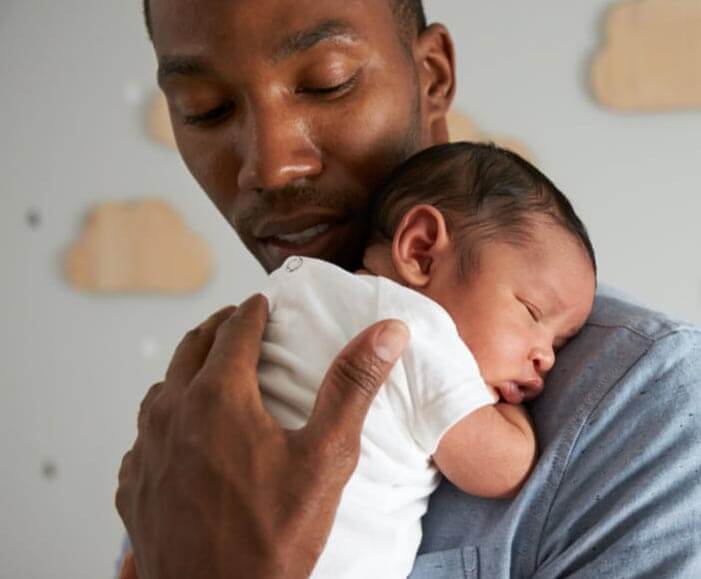One of the most effective ways to help your baby develop good sleep habits and sleep well is to establish a consistent nightly bedtime routine.
A bedtime routine eases your baby’s body and brain through the transition from the fun and excitement of daytime activities into the preparation for a restful night’s sleep. Research shows a bedtime routine is the foundation of healthy sleep patterns, including earlier bedtimes, reduced time to fall asleep, longer sleep duration, and fewer night wakings.
Having a regular bedtime routine can also help with the dreaded sleep regressions. These can happen at any point throughout your baby’s first year, and beyond, and are common occurrences. By providing a sense of comfort and predictability, a bedtime routine can help guide babies smoothly through these phases.

The benefits of a bedtime routine are long-lasting and wide-ranging:
- Evidence has shown the benefits are wide-ranging not only in the early months and years but are long-lasting right through into childhood and beyond! Specifically, where families of young infants established bedtime routines as early as 3 months of age, these routines are associated with important sleep outcomes.
- Another point to note is researchers have found a dose-dependent relationship between the frequency of bedtime routines in infancy and sleep outcomes for preschool-age children. They found the more consistent and regular the routine, the better the outcomes.
- Beyond its impact on sleep, a bedtime routine contributes to broader developmental and well-being outcomes in early childhood such as language and literacy development.
- A bedtime routine embodies the characteristics of nurturing care and is a wonderful way for you to bond with your baby at the end of a long day. It can help improve mood, stress levels, a child’s emotional and behavioural regulation, parent-child attachment, and family functioning, among other outcomes.
There’s no rush to get your newborn into a bedtime routine
- You should not feel under pressure to start a bedtime routine as soon as you get home from the hospital with your newborn baby. You, your partner and your baby need time to recover from the delivery, time to get to know each other and take your own time to establish your baby’s feeding patterns.
- The first few weeks with your newborn will go by in a blur of feeding, changing nappies and sleeping. And if your baby always falls asleep in your arms while feeding, that’s fine, that’s what babies do and you are not going to create “bad habits”. You should do what works best for you and your baby so you all get the rest, sleep and nutrition you need.
- As you gain confidence and get to know your baby’s habits and understand their tired cues more, you may decide now is the time to consider introducing a simple bedtime routine.

A simple bedtime routine for your young baby
- Start with something very short and simple. Some quiet cuddle time in dim light; followed by a pre-bath feed. This has the advantage that your baby won’t be both tired and hungry while you’re getting them ready for bed. It also has the added advantage of giving valuable extra time for any gas to disperse, so your baby is more comfortable when you settle them down.; particularly beneficial for babies who experience excessive gas or digestive issues like reflux.
- Offering an earlier feed also reduces the likelihood of your baby falling asleep while feeding right before bedtime, allowing you to put them down slightly awake.

- Then take them for a relaxing warm bath or a top and tail followed by a calming massage. Research has shown newborns who had a nightly massage as the last step of their bedtime routine, after one month reduced bedtime resistance, shortened the time it took for babies to fall asleep and mothers reported fewer night wakings and longer periods of night-time sleep.
- Next, dress your baby into their night clothes and sleeping bag and have a cuddly top-up feed. You may wish to finish the routine by reading a little book or singing your baby’s favourite trigger lullaby, finally soothing them to sleep with gentle rocking, patting and comforting words.
Putting your baby down sleepy but awake

- You might have heard that it’s ideal to place your baby in their crib when they’re drowsy but still awake, allowing them to learn to settle themselves to sleep. However, achieving this can be quite challenging in practice. If you find an opportunity to try it, go ahead, but remember, there’s no pressure to make it happen perfectly every time.
- Once your baby is relaxed and drowsy on their mattress you could try soothing them to sleep with gentle patting and shushing. If this doesn’t work, don’t worry, simply try again during the next opportunity. Over time your baby will gradually get used to falling asleep in their crib or cot.
Written by Mandy Gurney RGN.RM.DipHV.
Founder of Millpond Children’s Sleep Clinic




